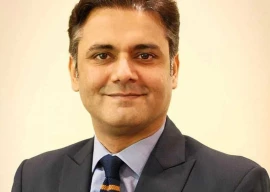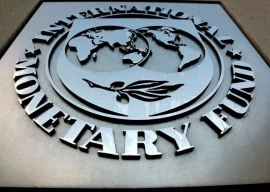
The consortium is considering investing up to €50 billion on a public-private partnership basis in different megaprojects like Naya Pakistan Housing Scheme, Reko Diq copper and gold project and Diamer-Bhasha dam and power project at a time when economies around the world are struggling to combat the fallout from Covid-19.
GIC is a more than 200-member consortium comprising hedge funds and investors pouring capital on the basis of engineering, procurement and construction (EPC) and public-private partnership models in emerging markets for infrastructure development. It can raise around €30-50 billion in structured finance for development projects in Pakistan.
The consortium can finance not only major infrastructure projects but also social-sector schemes that are direly needed in these trying times, when most of the world is locked down due to the Covid-19 pandemic.
Talking to The Express Tribune, GIC Regional Associate Muhammad Irfan Ali said, “We have been pretty much successful in convincing hedge funds to consider, in principle, raising enormous funds to channel into government projects in Pakistan.”
He said the hedge funds they worked with, though duly regulated, were not typical ones as their associates worked on developing real sectors in emerging countries such as affordable housing, mining, hydroelectric power, pipelines, roads, railroads and so on. They also pump structured money into social development in areas of healthcare, education, ecology, tourism and access to information technology.
He revealed that although a proposal had not yet been discussed with Pakistan government, GIC “has now provided the green light, in principle, to do so”.
He pointed out that funds could be structured in a customised model comprising public-private partnership projects for developing government infrastructure at a pace never seen before in the country, and at a scale, which could be larger than CPEC, if done properly.
The funding, subject to analysis, can be for 25 years at an interest rate of 1.5% per annum or so, with options, as well as concessions, to convert debt into equity in order to mitigate debt burden of the country.
“The funding and investment can go up to €50 billion over several years,” he said, adding that innovation in structured finance was the key to success of the ambitious programme while taking cognisance of Pakistan’s particular set of economic, political, foreign policy and national security challenges.
“Whatever will be proposed to the government needs to be done with appropriate confidentiality as the regional and global requirement of large funds is very competitive and challenging, especially now with governments around the world trying to cope with the Covid-19 fallout,” he said.
It is somewhat akin to the US president proposing a $2-trillion package to refurbish the dilapidated US infrastructure as spending creates jobs and jump-starts economic activity.
However, the conundrum for Pakistan is the state of the economy, virtual junk rating of its debt, precarious situation of foreign currency reserves, uncertain political will and ongoing bailout packages.
Published in The Express Tribune, April 14th, 2020.
Like Business on Facebook, follow @TribuneBiz on Twitter to stay informed and join in the conversation.
































1714370039-0/ojwilson-(1)1714370039-0-270x192.webp)


-(1)1714378140-0/AliAminMaryam-(4)-(1)1714378140-0-270x192.webp)
-(1)1714458896-0/ASP-(2)-(1)1714458896-0-270x192.webp)






COMMENTS (1)
Comments are moderated and generally will be posted if they are on-topic and not abusive.
For more information, please see our Comments FAQ